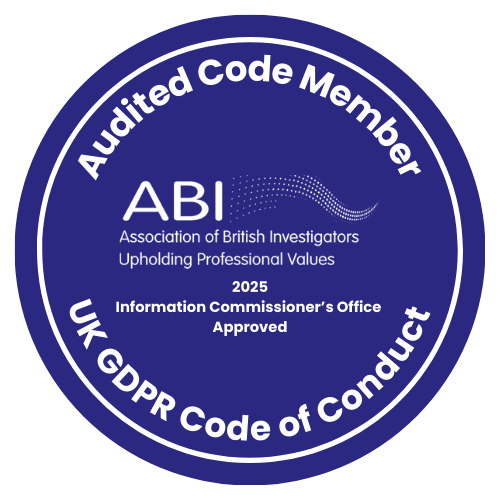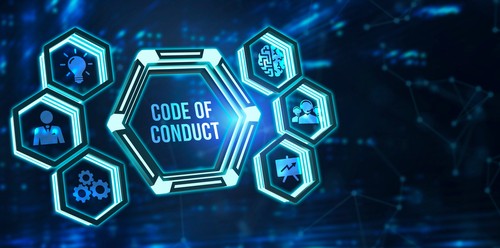


The investigation industry is an essential yet often misunderstood private sector service, playing a vital role in legal cases, fraud prevention, and personal investigations. However, despite its importance, the industry faces significant challenges. Among these, the biggest and most persistent issue is the lack of accountability and harmonised good practice standards across jurisdictions.
The Absence of Regulation
Unlike professions such as law or medicine, which require formal qualifications and adhere to strict regulatory frameworks, the investigation industry operates in a fragmented landscape. Some countries and regions have robust statutory controls, some with ethical oversight, while others have little to no regulation or accountability. This inconsistency creates several major problems:
Unqualified Investigators – In jurisdictions without compulsory accountability, such as the United Kingdom, Germany, Denmark and others, the term “private investigator” is unprotected, so virtually anyone can portray themselves in that business, regardless of skill, suitability, or dangers they could pose. This allows untrained individuals to operate in the field, often leading to unethical practices and substandard services.
Lack of Consumer Protection – Clients seeking investigative services have no universal assurance of competency or ethical standards. Without a regulatory regime, clients risk hiring individuals who may employ unlawful tactics, compromise evidence integrity, or even defraud them.
Difficulty in Cross-Border Investigations – Many investigations require work across different regions or countries. The lack of a consistent accountability structure, be it voluntary with compelling industry professional standards, makes it difficult for investigators to collaborate effectively with stakeholders, leading to legal and procedural complications.
Reputation and Ethical Issues
Due to the absence of a standardised system, the industry has long battled a negative perception. Media reporting of the sector tends to focus solely on the adverse side and thus portrays the whole industry as consisting of shady characters engaging in illicit surveillance or intrusive tactics. While many professional investigators uphold ethical standards, a lack of accountability, even under a voluntary scheme, allows bad actors to tarnish the industry’s reputation. This, in turn, leads to:
Client Distrust – Potential clients may hesitate to engage investigators, fearing unethical behaviour or unreliable results.
Legal Risks – Without oversight, some investigators resort to legally dubious tactics, resulting in potential criminal liability for both them and their clients.
Difficulty in Stakeholder Collaboration – Police, government offices, and legal professionals may be wary of working with investigators due to inconsistent standards and qualifications.
The Role of the Association of British Investigators (ABI) and the UK GDPR Code of Conduct
The ABI has actively engaged in establishing and maintaining industry standards to tackle significant challenges in the investigation sector for a long time. However, as the first and only professional organisation in this field to create a Code of Conduct under Article 40(5) of the UK GDPR, which has been approved by the ICO, the ABI offers a Code membership scheme allowing participants to show their dedication to lawful and ethical personal data processing whilst meeting the fit & proper test. Since handling personal data is a fundamental part of every investigator's work, it is crucial for all investigators to comprehend and follow compliant and ethical data processing practices. Code members will be assessed annually against the ICO-approved scheme, ensuring they uphold the highest standards in handling personal data, demonstrating a thorough understanding of sector-specific best practices while ensuring compliance with legal and ethical obligations.

UK GDPR Data Protection Compliance – Members adhere to strict data handling standards, reducing the risk of any unlawful processing.
Increased Consumer Confidence – Clients can trust that Code members adopt a high-standard of practice as assessed by an independent monitoring body.
Industry Leadership – By implementing this standard, the ABI strengthens the credibility of professional investigators and encourages broader adoption of best practices throughout the industry.
The Need for Global Professionalisation
A harmonised regulatory regime across borders is unfeasible due to the varying laws and judicial systems; however, personal data processing is a core investigative activity common to many jurisdictions, including all of Europe. Protecting personal data is crucial for shielding individuals from the harms that governments aim to prevent when establishing investigative licensing requirements. The legal framework to attain these objectives, which also encompasses thorough fit and proper checks, competence assessments, and ongoing professional development, is accessible to all countries subject to the GDPR under Article 40(5).
For the international investigation industry to overcome global challenges, professionalisation must be prioritised. Key steps include:
Codes of Conduct – Industry representative bodies must set about developing the strict ethical guidelines available in Article 40(5) codes, the approved template for which has been established in the ABI UK GDPR document, to ensure credibility and professionalism. Other European industry associations should explore similar Codes of Conduct with their respective Data Protection supervisory bodies.

Standardised Training – Investigators could explore certified training programmes to ensure a consistent skill level across the industry.
Public Awareness – Efforts made to educate all types of clients on how to verify an investigator’s credentials and the importance of hiring accountable professionals.
Conclusion
The investigation industry is essential in supporting legal, corporate, and individual needs, often across international borders. However, the absence of industry-wide standardisation remains a significant challenge. To safeguard the industry’s credibility and long-term sustainability, it is imperative for the sector to embrace the opportunity that now exists in the wider development of national GDPR Codes of Conduct to help enforce ethical guidelines and elevate professional standards. By addressing the issues and adopting the available solution, the sector can enhance its reputation, build greater trust with clients and other stakeholders more effectively.
Author - Mike LaCorte - F/1582
